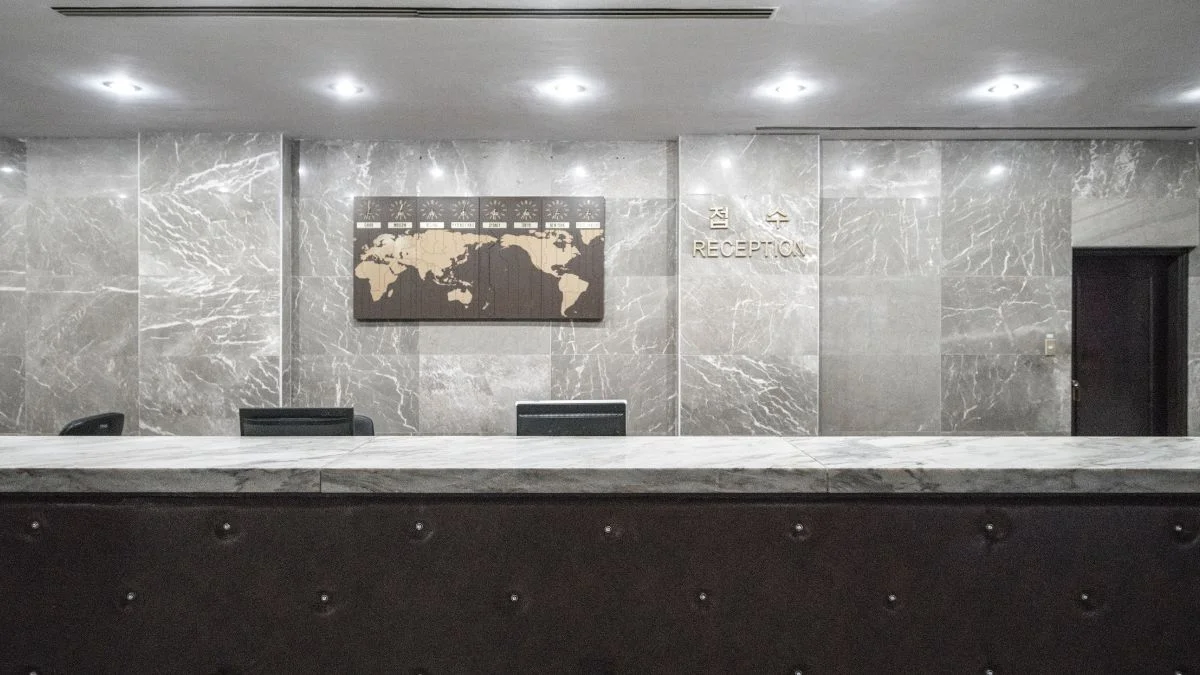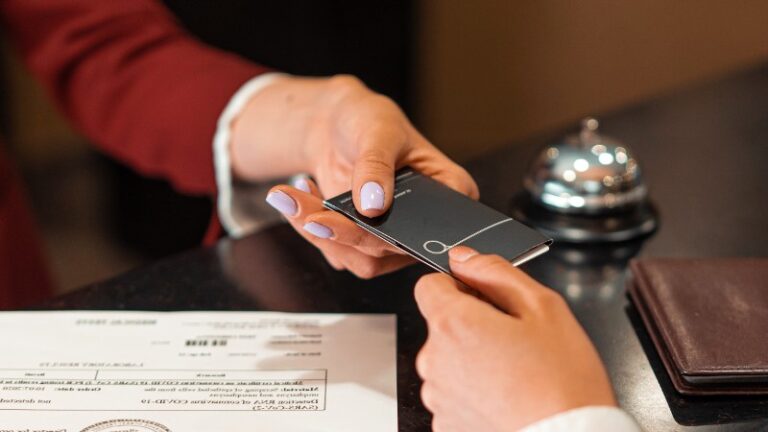Unresolved Hotel Security Deposit: Understanding Your Rights and Seeking Refunds

As participants in Amazon Associates and other programs, we earn from qualifying purchases. This comes at no additional cost to you. For more details, see our Affiliate Disclosure.
Staying at a hotel can be an exciting experience, but what happens when you’re faced with an unresolved hotel security deposit? Understanding your rights and knowing how to seek refunds is essential.
In this article, we will delve into the world of hotel security deposits, explore your rights as a guest, and provide guidance on how to navigate the process of seeking refunds for unresolved deposits.
Your Rights as a Guest: Understanding the Terms and Conditions
Every guest in a hotel has certain rights and responsibilities, and these are typically outlined in the terms and conditions of your stay, often agreed upon at the time of booking or check-in. The terms and conditions should clearly state the hotel’s security deposit policy, including the amount, what it covers, when it will be charged, and the conditions for its return. As a guest, it is your right to know these specifics before you agree to them.
Remember, these agreements are not merely formalities. They act as a legal contract between you and the hotel. If you feel that the terms are unfair or unclear, you have the right to ask for explanations or modifications. It’s important to note that many issues with security deposits arise due to misunderstandings about these terms, so taking the time to read and understand them can help avoid future disputes.
It’s also your right to be treated fairly and without discrimination. If you believe your security deposit is being held unjustly, or if the hotel is refusing to refund it without valid reason as per the agreed terms, you may be entitled to take legal action.
Always bear in mind that understanding your rights and the terms and conditions is the first step to navigating hotel security deposit issues. By doing so, you can protect yourself, your money, and ensure a pleasant stay.
Common Reasons for Unresolved Hotel Security Deposits
When it comes to unresolved hotel security deposits, a variety of scenarios could be at play. Here are some of the most common reasons:
- Damages or Losses: One of the most common reasons for withholding a security deposit is when the hotel identifies damage to the room or loss of hotel property during your stay. This could include damages to furniture, appliances, or any other items that are part of the hotel’s inventory.
- Unpaid Charges: Sometimes, guests leave the hotel without settling all charges. This can include room service, mini-bar charges, or fees for using certain hotel facilities. In such cases, the hotel may use the security deposit to cover these costs.
- Policy Misunderstandings: Often, the guest may not fully understand the hotel’s security deposit policy. For example, the hotel might have a policy of retaining the deposit for a certain number of days after checkout, which some guests may misinterpret as an unresolved deposit.
- Administrative Errors: Mistakes can happen in any business, and hotels are no exception. There may be errors in processing refunds, bank delays, or even oversights where the hotel staff forget to initiate the refund process.
- Disputes over Service Quality: Occasionally, guests may hold back payment or demand refunds due to dissatisfaction with the hotel services. If these disputes cannot be immediately resolved, the security deposit may remain in limbo.
Understanding these common reasons can help you prevent issues with your security deposit. It’s always a good idea to clarify any doubts about charges, damages, or hotel policies before you check out of your hotel.
Steps to Take: Resolving an Unresolved Hotel Security Deposit
Resolving an unresolved hotel security deposit can sometimes be challenging, but knowing the right steps to take can significantly simplify the process.
- Understanding the Agreement: Before taking any steps, make sure to thoroughly understand the terms and conditions that you agreed upon when you checked in. This will help you understand if the hotel is indeed in breach of the agreement.
- Initial Communication: Contact the hotel directly, ideally in writing, outlining your concerns and asking for clarification regarding the status of your security deposit. It’s important to keep a record of all communications.
- Provide Evidence: If your claim is related to something specific, like damage charges that you believe are unjust, provide as much evidence as possible to support your case. This could be photographs, eyewitness accounts, or any other relevant evidence.
- Dispute the Charge with your Bank or Credit Card Provider: If the hotel is unresponsive or unwilling to return the deposit without valid reason, you can contact your bank or credit card provider and dispute the charge. They can often help mediate the situation.
- Consult Consumer Protection Agencies: In some countries, consumer protection agencies can help in cases where service providers are not adhering to their agreements. If your dispute remains unresolved, consider reaching out to such an agency.
- Seek Legal Advice: If all else fails, and the sum in question is significant, you might want to consider seeking legal advice. Lawyers specializing in consumer rights can guide you through the process.
The key to resolving these situations lies in clear communication, understanding your rights, and taking a firm but diplomatic approach. Don’t hesitate to ask for your rights, but also be sure to listen to the hotel’s point of view, as misunderstandings can often be resolved with a bit of dialogue.
Seeking Refunds: Tips and Strategies
When you’re faced with an unresolved hotel security deposit, knowing the right tips and strategies to seek refunds can save you time, effort, and money. Here are some essential steps to guide you through the process:
- Maintain Calm and Patience: It’s natural to feel frustrated if you believe your security deposit is unjustly held. However, maintaining a calm and patient demeanor can go a long way in resolving the issue, particularly during interactions with the hotel staff.
- Clear Communication: Clearly communicate your concern in writing, explaining why you believe the security deposit should be refunded. Include all pertinent details and any supporting evidence you may have. Be sure to include the date of your stay, room number, and any other details that can help the hotel identify your booking.
- Know Your Rights: Understand what the local laws and regulations say about hotel security deposits. If you believe the hotel is not complying with these regulations, point it out in your communication.
- Engage With Upper Management: If initial discussions with the hotel’s frontline staff do not resolve your issue, consider escalating the issue to upper management or the hotel’s corporate headquarters if it’s part of a chain.
- Utilize Social Media or Review Platforms: In today’s digital age, customers have significant influence through social media and review platforms. A well-worded, factual review about your experience can prompt the hotel to address your concerns.
- Dispute with Credit Card Company: If the hotel refuses to refund your deposit unjustly, consider disputing the charge with your credit card company. They can investigate the issue and may be able to refund your money.
- Seek Legal Advice: If your security deposit is substantial and your attempts at resolution are not successful, you might consider seeking legal advice. Consumer rights lawyers can provide guidance on your next steps.
Remember, every situation is unique, so you may need to employ a combination of these strategies. The key is to be persistent, polite, and proactive in seeking resolution.
The Role of Consumer Protection Agencies
Consumer protection agencies play a vital role in defending the rights of consumers and ensuring fair trade. When it comes to unresolved hotel security deposits, these agencies can be invaluable resources for guests. Here’s how they can help:
- Provide Information: Consumer protection agencies are rich sources of information. They can help you understand your rights as a consumer and provide guidance on how to resolve disputes with businesses, including hotels.
- Mediate Disputes: Many consumer protection agencies offer dispute resolution services. They act as neutral third parties, mediating between the consumer (you) and the hotel to reach a fair resolution. Their involvement can sometimes prompt a quicker response from the business.
- Investigate Complaints: If a hotel is repeatedly involved in disputes over security deposits, a consumer protection agency may launch an investigation. They can review the hotel’s practices, ensure they’re following the law, and, in some cases, impose penalties or mandate changes to their policies.
- Legal Assistance: While not every agency offers this service, some can provide legal assistance or refer you to a legal professional specializing in consumer rights.
- Policy Change: By bringing recurring issues to light, consumer protection agencies can influence changes in law and industry practices, making the marketplace fairer for all consumers.
These agencies exist to help you. Don’t hesitate to reach out to them if you’re facing difficulty in resolving your hotel security deposit issue.
Preventive Measures: Avoiding Unresolved Hotel Security Deposits
While it’s important to know how to resolve an unresolved hotel security deposit, prevention is often the best strategy. Here are some proactive measures you can take to avoid issues with hotel security deposits:
- Understand the Hotel’s Policy: Before you book your stay, make sure to read the hotel’s policy on security deposits. Knowing the amount, what it covers, and when it will be returned can help avoid misunderstandings later.
- Document Everything: Upon check-in and check-out, take pictures of your room, especially any existing damage. This can serve as evidence if there are disputes about damages later.
- Avoid Extra Charges: Be mindful of extra charges, such as minibar costs, room service, or pay-per-view movies. Make sure to settle these before checking out to avoid having them deducted from your deposit.
- Check Out in Person: If possible, check out in person rather than dropping off your key. This gives you the opportunity to discuss any potential charges and clarify the return of your deposit.
- Use Credit Cards: If possible, use a credit card rather than debit card for hotel bookings. It is often easier to dispute charges with a credit card company.
- Maintain Good Communication: Keep clear and open communication with hotel staff. If you’re unsure about something, ask. This can prevent misunderstandings and foster a good relationship with the hotel, making it easier to resolve any potential issues.
- Review your Statement: After check-out, review your bank or credit card statement to ensure that the deposit has been returned as expected. If not, contact the hotel immediately to address the issue.
By taking these preventive measures, you can significantly reduce the likelihood of experiencing issues with your hotel security deposit and ensure a smooth and pleasant hotel stay.






